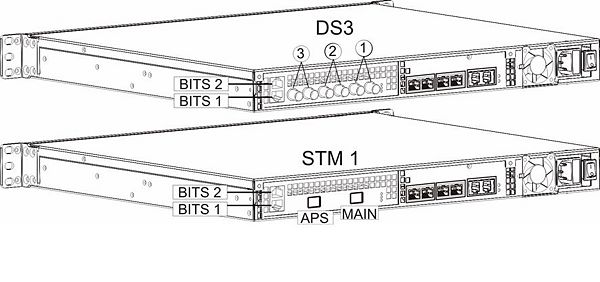Toolpack v2.3:BITS Ports
(Added kHz mode support only.) |
Cboulanger (Talk | contribs) m (CAS on BITS ports not working (tracking #15804)) |
||
| Line 12: | Line 12: | ||
== Using BITS ports for signaling == | == Using BITS ports for signaling == | ||
| − | Starting with release 2.3 of [[Toolpack]], it is possible to convert unused BITS ports into [[Signaling_Ports|signaling ports]] in order to recover a channel on the primary DS3 or STM-1 connection. | + | Starting with release 2.3 of [[Toolpack]], it is possible to convert unused BITS ports into [[Signaling_Ports|signaling ports]] in order to recover a channel on the primary DS3 or STM-1 connection. Note that CAS protocols (R1 and R2) will not work on BITS ports used in signaling mode. |
== Related actions == | == Related actions == | ||
Latest revision as of 15:58, 4 January 2016
TelcoBridges Tmedia and Tdev devices support the sharing of a precision clock among multiple devices via the Building Integrated Timing Supply (BITS) method. With TelcoBridges hardware, BITS Ports are derived from DS3 and STM-1 TDM adapters of a Tdev TMP6400 or a Tmedia TMG3200, as well as from a TMS1600. The BITS clock source must support the kbits/s mode (not kiloHertz/kHz mode).
BITS ports and clocking
In order to use BITS as a clocking source, the BITS ports of a TDM module are assigned to a line service that will carry the BITS port signaling. BITS Ports are shown in the figure below.
Click here for specific information on configuring BITS ports as a clocking source.
Using BITS ports for signaling
Starting with release 2.3 of Toolpack, it is possible to convert unused BITS ports into signaling ports in order to recover a channel on the primary DS3 or STM-1 connection. Note that CAS protocols (R1 and R2) will not work on BITS ports used in signaling mode.
